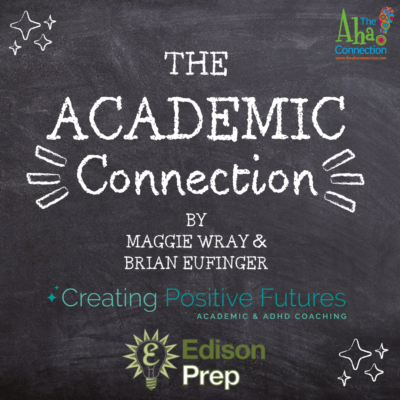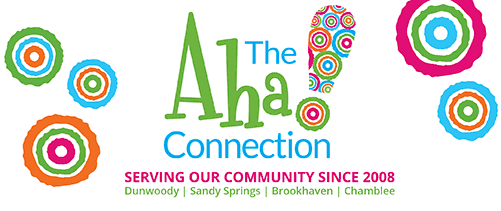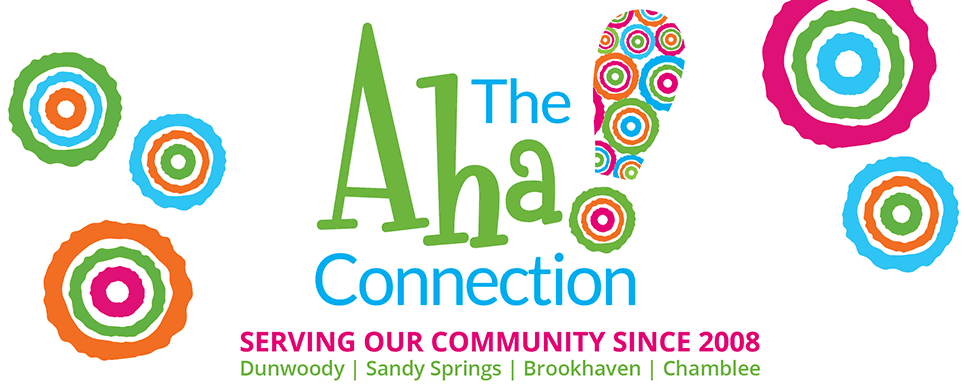 by Maggie Wray of Creating Positive Futures for The Aha! Connection
by Maggie Wray of Creating Positive Futures for The Aha! Connection
As your teen prepares to fly the nest for college, one question may keep you up at night: Are they truly ready to make it on their own?
With so much to plan and pack, it’s easy to overlook taking time for deeper discussions about values, expectations, and future plans. However, studies of parental involvement suggest that having open conversations with your teen during their transition to college can result in better academic performance, decreased social anxiety, more positive connections with peers, and higher levels of autonomy and independence.
With roughly 30% of college freshmen in the US dropping out before their sophomore year, prioritizing these six essential conversations now can pay massive dividends for your teen’s well-being and college success.
- Health and Self-Care
For the first time in their lives, college students are fully responsible for their own well-being. Are they prepared to make smart decisions when you’re not around to support them? Some key questions to discuss are…
- What sleep, nutrition, and exercise habits do they want to maintain in college? Why is this important to them?
- Will they be seeing doctors on campus or at home? Who will be responsible for scheduling those appointments?
- What medications and supplements are they taking to college? How will they keep track of these prescrptions and remember to request refills?
- Academics and Grades
For many high schoolers, grades were all about getting into college. Once they’re in, it’s important to make sure your academic goals and expectations are still aligned. Explore their priorities by talking about…
- What is their GPA goal, and why does this matter to them? Is there a minimum GPA they need to maintain for you to keep paying for school? If they fail a class and need to re-take it, who will pay for it?
- Do you expect to have access to their grades? If so, how often will you be checking them? (Note: If they are over 18, they will need to sign a consent form with the school waiving their FERPA rights in order for you to see their grades)
- How do they plan to create meaningful relationships with their professors? (asking questions after class, attending office hours regularly, etc.)
- Accommodations and Support Services
Most colleges have a plethora of support services available for students, many of which students do not take full advantage of. Especially if your student has any physical, emotional, or learning disabilities, it’s important to make sure they are aware of the services that are available to help them. Discuss…
- Are there any accommodations that would be helpful for them to request in college (notetaker for lectures, early registration, etc.)? If so, when and how can they register for these accommodations?
- What other resources and support services are available at their college? (counseling, tutoring, writing center, academic coaching, etc.)
- Are you open to setting up additional services if they can’t find the support they need on campus? How should they let you know if they need more help?
- Finances and Budgeting
College is a crash course in money management, and provides ample opportunities for students to overspend on everything from textbooks to eating out. Get on the same page about…
- Which expenses will you cover (tuition, rent, flights home, etc.) and which will they be responsible for?
- Will you be giving them money for these expenses at the start of the semester? On a monthly basis? Paying bills directly? What will happen if they run out of money before the end of the semester?
- What is your definition of “graduating on time?” Is there a limit to how many semesters of college you are willing to pay for?
- Choosing a Major
Feeling uncertain about a major is developmentally appropriate in a student’s first year of college. You can help them navigate this process by discussing…
- How involved are you hoping to be in their exploration and decision making about majors and careers? In helping to choose their classes each semester?
- What major(s) are they currently considering, and what is the current job outlook in those fields? Will they need graduate or professional school and/or internship experience to get a job in this field?
- How do they plan to use campus resources like academic advising, career counseling, job fairs, and/or alumni networks to help with exploring majors and careers?
- Social Life and Extracurriculars
Academics are just one side of the college experience. The social connections they build can also play a big role in how well they do in college and beyond. Talk together about…
- What opportunities are available for them to get involved and make connections on campus?
- What does a balance between academic and social activities ideally look like for them? What obstacles could get in the way of maintaining that balance, and how will they deal with them?
- Are there any time-intensive activities (rushing a fraternity, getting a part-time job, etc.) that you would prefer for them to avoid in their Freshman year?
Taking the time to have these conversations before your student leaves for college will help establish clear expectations and increase their chances of success. Even more importantly, it will help reassure them that you are a safe and supportive person to talk with about these topics, and help them feel more comfortable reaching out to you for help when they encounter obstacles along the way.
Heading off to college is a huge step, and it’s normal for students to have challenges adjusting to life on campus. If you think your student could benefit from some extra support from someone who’s not a parent at any point during their college transition process, we would be happy to help! To learn more about how we support students during their transition to freshman year and see if this is something that would be helpful for your student, click here to set up a FREE Parent Strategy Session.
If you want more support – Free parent consultations for Aha! Connection subscribers

















